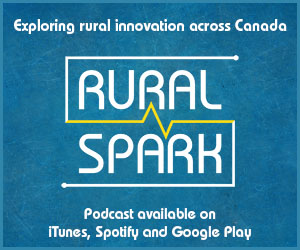As summer temperatures begin to heat up, there is a cool down, of sorts, coming – at least when it comes to remaining COVID-19 restrictions in Nova Scotia.
In a press release issued on Monday morning (July 4), followed by a Zoom video conference with media later in the day, Nova Scotia Medical Officer of Health Dr. Robert Strang described it as the “right time” to remove the remaining health guidelines – some of which have been in place for more than two years – aimed at minimizing the effects of the global pandemic.
“Although we expect to see smaller waves of COVID-19 variants over the summer, our high vaccine coverage and low risk of severe disease from Omicron variants make it manageable, as we learn to live with COVID-19,” he explained, adding, “That’s why we are removing the remaining COVID-19 restrictions for the general public.”
While cautioning that the pandemic is “not over,” Strang noted that “Nova Scotians have the tools and resources to make the right decisions to keep each other safe."
“I understand that there is concern,” he said, when it comes to removing the restrictions.
As with any measures that have been taken during the course of the pandemic in the province, Strang noted, “We are never going to keep everyone happy.”
As for the restrictions being shelved, which will come into effect at 12:01 a.m. on Wednesday, July 6, provincial health officials have listed them under the three categories of isolation, masks and testing.
It will be “strongly recommended,” rather than mandatory for a person to isolate if they test positive for COVID-19; people who have symptoms – such as a cough, sore throat or fever – are also strongly recommended to isolate until they are feeling better.
“It is still important for people with symptoms to avoid high-risk settings and people at risk,” Strang told reporters.
With isolation no longer required, Strang was asked if he is concerned that will lead to an increase of COVID-19 cases.
“I don’t see that [it] will change things substantively,” he offered.
Noting that there has never been a way in which to ensure that everyone was following the mandatory isolation guidelines, he explained – as the virus remains part of our lives – there needs to be a more “sustainable and feasible” approach. He added that – with high protection levels, when it comes to severe illness – it benefits removing that measure.
“We have always relied on people to do the right thing.”
Nevertheless, if at all possible – and he pointed out that there are reasons it cannot happen, the province recommends that people with COVID-19 stay at home.
If a workplace has occupational health policies that are stricter than the provincial guidelines – in areas such as isolation and masking – they must be followed.
When it comes to masks, they will become optional, rather than “strongly recommended.”
The masking prevention measure will remain “strongly recommended” for people who are ill, or in a crowded indoor setting.
For people who have COVID-19 symptoms, but cannot isolate, it also remains “strongly recommended” to continue wearing a well-fitted mask in indoor public places, on public transit and in crowded areas.
Strang explained that it is an individual’s decision whether or to wear a mask, while weighing their risk factors and “comfort” of people around them.
And, he stressed, it remains “perfectly acceptable” for Nova Scotians to wear a mask in public, if that is their decision.
When it comes to testing, people with symptoms will still have access at centres across the province.
People with symptoms, who are in a low-risk category in their self-assessment, will have access to rapid tests only. They will not receive a PCR test, regardless of the result of their rapid test.
Health officials continue to recommend – and will provide access to – PCR testing for “high-risk” people and those who work or live in “high risk” congregate settings.
Nova Scotia will no longer offer testing for those without COVID-19 symptoms, while rapid tests will continue to be available at public libraries and MLA offices. People should not go to those locations if they are sick.
Even with their removal, the provincial announcement notes that “most restrictions in high-risk settings will remain in place.”
As a way of aligning with the policy at hospitals, designated caregivers and visitors will no longer need to show proof of vaccination at long-term care homes, corrections facilities, shelters and transition houses. They will also be allowed to remove their masks when visiting in a private area or while outdoors.
The seven-day isolation required for residents who test positive for COVID-19 in these facilities remains in effect.
Mandatory vaccination protocol for “high-risk settings” remains in place.
Speaking of vaccinations, Strang was asked when there could be one available for the youngest Nova Scotians – those five years old and younger.
“We don’t have an answer,” he offered, noting that provincial officials are awaiting a decision from Health Canada.
Strang noted that when one is greenlighted, “We will be ready to go and [will] roll out a plan.”
As for the effect of dropping the remaining COVID-19 restrictions, he offered, “Time will tell.”
Strang said – reiterating that has always been the approach of provincial health officials – it is about “striking a balance,” explaining they realize that measures taken to combat the virus have affected other areas, such as mental health and surgery and treatment waits.
When asked if this move meant the end of restrictions – such as masking and social distancing – he said, “I would never say never to any of those,” while noting that there is always the threat of a resurgence that could necessitate their return.
“We are not out of the pandemic yet, there is still uncertainty,” Strang noted.
As for COVID-19 updates, they will now be posted online monthly, with the next one scheduled for July 15, which will provide information for June. Subsequent reports will be issued on the 15th of each month.
Because the situation remains “relatively stable” on a week-to-week basis, Strang said the decision was made to move to issuing a “full epidemiological report” each month, while the online dashboard will continue to be update weekly. And, he notes, if something arises that requires an announcement before the month-long period elapses, that will happen.
More information on COVID-19 in Nova Scotia is available at: https://novascotia.ca/coronavirus/








